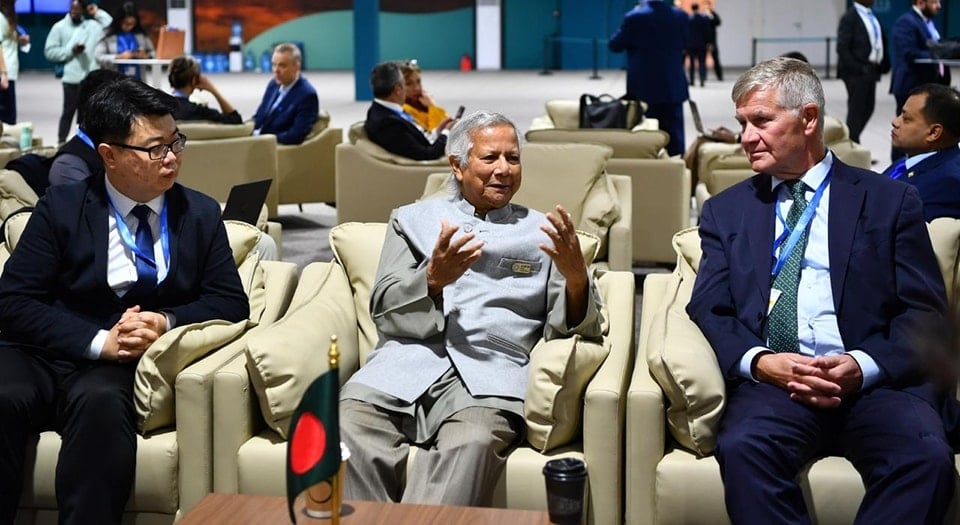

Chief Adviser Professor Muhammad Yunus today called for creating a South Asian grid to share the hydroelectricity generated by Nepal and Bhutan.
In a meeting with the Social Business Group on the sidelines of the climate conference in Baku, he said much of the hydroelectricity potential of the Himalayan nations remain untapped due to a lack of electricity grids connecting Bangladesh, India, Nepal and Bhutan.
Nepal officials have said the country has the potential to generate 40,000 megawatts of hydroelectricity, which can help lessen the reliance on fossil fuels in bigger countries such as India and Bangladesh, according to a message received in Dhaka.
"Bangladesh can easily bring hydroelectricity from Nepal as it is only 40 miles from Bangladesh. Nepalese hydroelectricity will also be cheap," Prof Yunus said, adding Bangladesh, India, Nepal and Bhutan should think of creating a South Asian grid.
The chief adviser, who has joined the COP29 climate conference in the Azerbaijan capital, said Bangladesh has put the highest priority on water management to prevent floods and to make the best use of water to boost the country's economic growth.
"Water is our main environmental issue. We have to do water management in a way that it supports nature," he said.
He told the social business meeting that the interim government has also stressed youth development and reforming the country's education system.
Prof Yunus said the government would hold a festival for the youth in January when the country's cricket board will arrange its annual T20 BPL cricket tournament.
FIFA President Gianni Infantino and IOC President Thomas Bach are expected to join the festival. A tournament for women football is also being planned.
"We are trying to hold the festival in all parts of the country," the chief adviser said.
Prof Yunus also spoke about the interim government's reform initiatives and the July-August mass uprising, which ended the 15-year-long brutal dictatorship of Sheikh Hasina.
He also talked about the key issues in the COP29 and Bangladesh's current negotiations over carbon credits.

